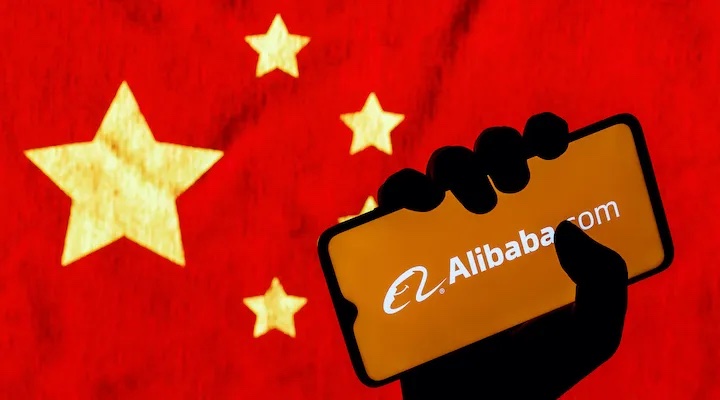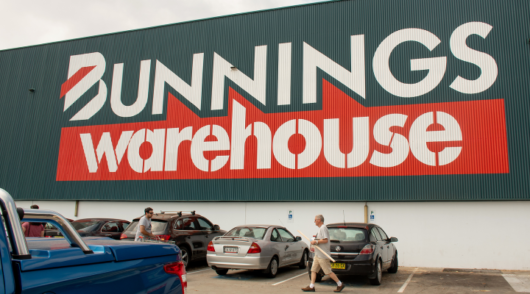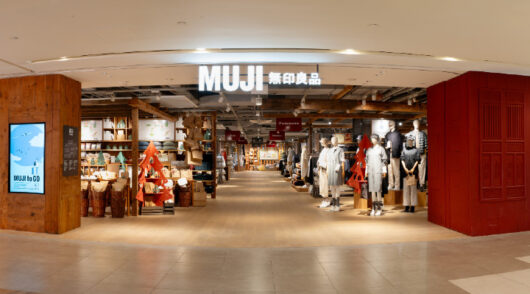Alibaba Group said it would not give a forecast for the current fiscal year due to Covid-19 risks as it reported its slowest quarterly revenue growth since going public in 2014.
The e-commerce giant said coronavirus resurgence in China, and lockdowns imposed to curb its spread in Shanghai and other cities weighed on its business by hindering merchants from shipping goods and making consumers focus on buying necessities.
“Online physical goods GMV (gross merchandise value) of our China retail marketplaces, excluding unpaid, saw year-on-year decline in the low-teens percentage in April,” Chairman and CEO Daniel Zhang told analysts on a post-earnings call.
April was the first month of the first quarter of Alibaba’s current fiscal year and one when the Covid-19 curbs hit particularly hard.
“To give you a sense of the scope of impact – Based on consumer address, cities with new Covid cases in April represented more than half of our China Retail Marketplaces GMV,” Zhang said, adding that Alibaba’s key supply chain and logistics hubs were also affected.
While delivery services resumed in May, they were taking time to fully recover due to factors such as parcel backlogs, the company said.
Alibaba said in a statement it believed it was “not prudent” to give financial guidance for the year ahead given Covid-19-related risks outside of its control and which were “difficult for us to predict.”
China’s slowing economy
The company reported revenue rose 9 per cent to US$30.35 billion in the January-March quarter – the slowest rise since its listing, but ahead of analyst estimates, and prompted its US-listed shares to rise by over 10 per cent.
Alibaba said growing demand at Chinese commerce units such as Tmall Supermarket and Freshippo as well as niche shopping platforms such as Taobao Deals and Taocaicai helped boost sales. Analysts on average had expected revenue of $29.567 billion, according to Refinitiv data.
Covid-19 lockdowns have prompted some analysts to downgrade their economic growth forecasts for China this year and businesses from retailers to chipmakers have in recent weeks warned of slow sales as local consumers curb spending.
Although its approach looks increasingly out of step with the rest of the world, Beijing has vowed to stick with its zero-Covid policy, saying that relaxing curbs could cause a high number of deaths and overwhelm its medical system.
But in a sign of its growing concern about the economic fallout, Premier Li Keqiang on Wednesday promised steps to bring the economy back on track.
Citing the meeting, Zhang said the Chinese government had sent “important policy signals” on its commitment to stabilize the economy and that Alibaba wanted to support those efforts.
Aequitas Research analyst Ming Lu forecast quite a weak June quarter for Alibaba but gradual recovery in the second half of the year thanks to the probable easing of the lockdowns
Investors have also been jittery over the long-term outlook for Alibaba and its peers because of a regulatory crackdown on the tech industry and have been looking for signs that the worst might be over.
Asked about this on the call, Alibaba executives said they believed that authorities had delivered a “clear” message that they recognised the economic importance of platform companies like Alibaba and were committed to their healthy development.
Revenue in Alibaba’s cloud computing division rose 12 per cent to $2.8 billion in the reported quarter. At the core commerce unit, its largest, revenue rose 8 per cent to $20.8 billion.
Annual active consumers on its platforms reached about 1.31 billion for the fiscal year, including more than 1 billion consumers in China for the first time.
Ant Group, Alibaba’s fintech affiliate, reported a profit of about $3.26 billion for the quarter ended December, according to Alibaba’s filings on Thursday, compared with $3.23 billion a year ago.
Alibaba also said that it received a $579 million dividend from Ant Group, the first time the fintech conglomerate has paid out one.
Reporting by Nivedita Balu in Bengaluru; Editing by Anil D’Silva and Tomasz Janowski, of Reuters.






